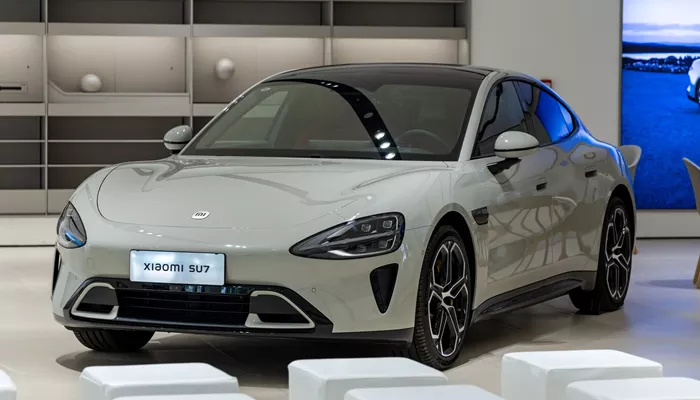The Chinese electric vehicle (EV) market experienced a mostly positive trend during the third week of April, with several manufacturers seeing significant growth in registrations.
Top Performers
BYD led the market with 56,300 registrations, marking a 5.4% increase from 53,400 the previous week. In total, BYD registered 154,800 vehicles in China during the first three weeks of April. Its Denza brand also performed well, registering 3,300 vehicles, a 10% rise from 3,000 the previous week. Denza’s total for April’s first three weeks reached 8,900 vehicles.
Li Auto saw a 22.2% increase, with 8,800 units registered during the week, up from 7,200 the week before. Over the first three weeks of April, Li Auto registered 22,200 vehicles. Despite struggling with its all-electric model, the Li Mega, the company plans to launch a new electric SUV, the Li Auto i8, in Q2 2025. Li Auto is aiming to sell 700,000 cars in 2025, a substantial increase from the 500,508 vehicles sold in 2024.
Leapmotor’s Surge
Leapmotor, backed by Stellantis, posted a strong performance with 8,600 registrations, a 34.4% increase from 6,400 the previous week. Leapmotor’s total for the first three weeks of April reached 20,400 vehicles, surpassing both Xiaomi and Tesla.
Xiaomi and Tesla Numbers
Xiaomi, the Beijing-based smartphone giant, saw 7,200 registrations, a 14.3% rise from 6,300 the week before. In the first three weeks of April, Xiaomi registered 18,600 vehicles. The company recently raised its 2025 delivery target by 50,000 units to 350,000 vehicles, up from 135,000 in 2024.
Tesla registered 6,800 vehicles, a 25.9% increase from 5,400 the previous week. In total, Tesla registered 15,800 vehicles in the first three weeks of April. The company sold 78,828 vehicles in March, which was a 11.5% drop from 89,064 units the previous year but a 156.9% increase compared to February’s 30,688 units.
Xpeng and Nio’s Growth
Xpeng saw 6,600 registrations, a slight drop of 1.5% from the previous week. However, the company’s performance in the first three weeks of April was strong, with 20,800 registrations. Xpeng’s Mona M03 sedan has been a key driver of these sales, helping the company maintain a consistent monthly delivery of over 30,000 vehicles.
Nio posted a significant increase of 54.3% with 5,400 registrations, compared to 3,500 the previous week. In the first three weeks of April, Nio registered 10,700 vehicles. This increase came after Nio introduced new incentives to clear inventory ahead of the launch of facelifted models. Nio is offering five years of free battery swapping with a cap of 240 swaps for new buyers.
Smaller Brands and New Entries
Other brands, such as Onvo, reported 775 registrations, up 6.2% from the previous week. Onvo’s L60 SUV, launched in September 2024, competes with the Tesla Model Y but has not met its sales targets. In March, Onvo only delivered 4,820 units, missing its target of 20,000 vehicles. CEO Alan Ai resigned after the shortfall, with Shen Fei, head of Nio Power, taking over the role. Onvo is planning to unveil a new model, the L90, at the Shanghai Auto Show.
Nio Group, which includes Onvo, saw 6,200 total registrations for the week, a 48% increase from 4,200 the previous week. Nio’s third brand, Firefly, launched its first EV on April 19, a small electric hatchback starting at 125,800 yuan ($16,770 USD). Firefly supports battery swapping, although the necessary infrastructure is not yet in place.
Other Notable Brands
Deepal recorded 4,500 registrations, up 3.7% from the previous week. Aito registered 4,400 units, an increase of 37.5% from 3,200 the previous week. Zeekr posted 2,700 registrations, up 17.4% from 2,300, while Avatr saw 1,400 registrations, down 6.7% from 1,500.
The latest numbers reflect a strong growth trajectory in China’s EV market, with BYD continuing to lead, while newer players like Xiaomi and Leapmotor are making notable strides. The continued growth of Nio and Xpeng indicates a healthy competition among domestic brands as they race to meet increasing demand for electric vehicles.

